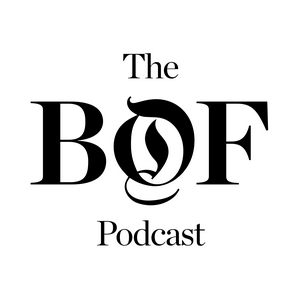If you’ve been to a major party in London, Paris or Los Angeles, chances are that Dave Benett was there too. For nearly four decades, Benett has been a constant presence, documenting the evolution of celebrity, society and style in all the spaces and places where culture is happening.
From concerts with Madonna and Prince to after-parties with Princess Diana and the rise of fashion as a pillar of culture, Benett has seen it all and become an expert at the art of working a room.
“Journalists can miss something [and] be told about it. Photographers can’t,” he says. “Whatever you’re doing, you’ve got to make sure your eyes are everywhere.”
This week on The BoF Podcast, Benett joins Amed to talk about what it really takes to cover an event, how party photography has changed in the era of smartphones and Instagram, and why relationships — not just access — are everything.
Now he is launching the Dave Benett Agency — a boutique model designed to protect quality, mentor a new generation of photographers and adapt to an era where everyone has a camera, but very few know where to stand.
Key Insights:
Born in Mauritius in 1958, Bennett moved to the UK as a child and by his late-teens was honing his photography skills at the Daily Mirror and Thames TV, covering riots and crime before pivoting to the social scene. He witnessed the cultural shift where fashion merged with music and celebrity: “We started to see it when Kate Moss, Naomi [Campbell], Vivienne Westwood and the The Fashion Awards all started to happen.”
Bennett operates as what he calls a "society photographer," a role built on mutual respect and long-term relationships. He explains, "we were recording what society was doing. We photographed the royals but when they came into our world and that relationship really did make a difference.” This trust was exemplified by his interactions with Princess Diana at private events. “I would just photograph her arriving and meeting the host and then she could go off and chat to all her friends. She felt safe ... and it really paid off for us as the doors closed later on."
While the digital revolution has democratised image-taking, Dave argues that there is a distinct gap between a personal snapshot and a professional photograph. He acknowledges that "the power of the individual has increased massively," but maintains that the industry still relies on a specific editorial eye. "The good thing for me is that they still need what we do, because we're shooting for a client ... and there's a skill that comes with that — how you take a photo, what you're looking for in the photo. When you've got people with their own cameras, their own phones, taking their own pictures, they practically have only one use — for themselves."
Benett describes event photography as a tactical exercise, mapping arrivals, tracking key players and staying on his feet for hours. To capture the right moments, he explains: "You work out exactly where you need to be for the initial arrival or where they come, then you work the room as and when new people arrive. You can actually spend four hours just campaigning the room, just making sure you're in the right place at the right time."
Additional Resources:
The Return of Old-School Celebrity Campaigns | BoF
How Celebrity Image-Makers Capitalise on the Red Carpet | BoF .
Hosted on Acast. See acast.com/privacy for more information.


